Liberty and the law
From the perspective of the South African Struggle and current society.
In South Africa we have a problem, a big problem.
The fact that many people here do not view it as a problem is a problem in itself. The problem is breaking the law in many little ways, such as speeding, not obeying traffic signals, stealing, absenteeism from work, tax avoidance and so on. You may say that is the same all over the world, I agree, but in here in South Africa, a culture of civil disobedience exists.
As usual, I will try give a little background to the South African Situation.
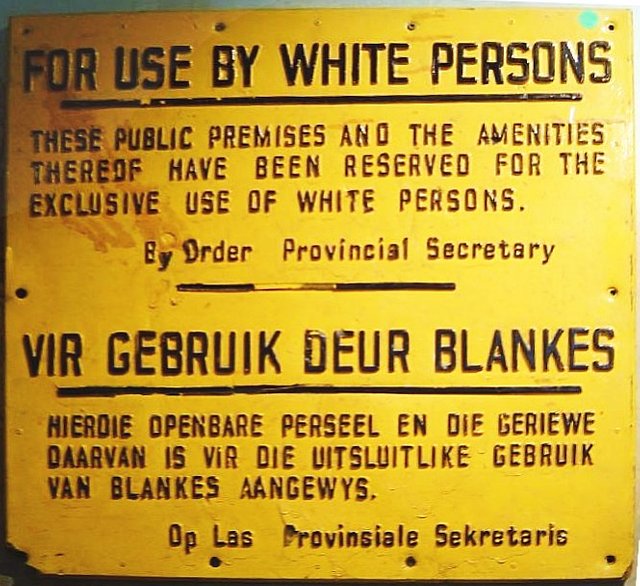
Until 1994, black people had been marginalised and not part of mainstream basic rights as enjoyed by the white communities. Rights such as sanitation, refuse removal and even electricity did not exist for the majority of the country’s inhabitants. Education was second class when compared to their white counterparts. This of course led to the Soweto Uprisings in 1976 when Afrikaans was forced on Black schools as a medium of instruction.
When a people are disenfranchised or deprived of their political right to vote, what options exist?
The apartheid system feared the mobilisation of the Black masses and attacked any organisation or leaders that could be viewed as opposing the then current state of affairs. The only real option that the resistance leaders had was to use the weapon of the boycott. This basic act, was low escalation which might protect the protesters from an aggressive Police Force.
In 1944 under the old United Party when Jan Smuts was the Prime Minister, the Black people in Alexandra were confronted with a price hike in the bus fares. They refused to take the buses to get to work and walked, the even tiny increase in bus fares were more than they could afford. Their wages were below subsistence minimum levels. In 1940 a Commission of Inquiry into the operation of bus services for non-Europeans was set up. Four or five years later, the Commission concluded that Africans could not afford to pay increased fares, in fact they said that the Africans could not afford to pay anything and that their minimum food requirements could not be met. The strategy of Smuts at the time was to drag anything out, attempting to postpone dealing with the issue of Black emancipation. But the Government of the day (United Party) was fairly sensitive to public pressure despite “standing aloof” from the dispute.
However, in 1956 and 1957, the attitude of the Nationalist Party Government was intransigent and immovable. Black attitudes were starting to harden due to broken promises and unrealised expectations. This time the bus boycott endured for over three months, also it had spread from Alexandra to other cities. It must also be remembered that black communities were segregated on the outskirts of the more affluent white communities and cities, so very long walks had to be endured both ways. They started walking before the sun rose and only got home after the sun set. Intimidation by the police force was used against the walking boycotters; people crossing the streets not at robots were jailed, because white motorists gave lifts, the police stopped cars of sympathetic motorists and took tape measures to ensure that each passenger had a minimum of 15 inches to sit on, no less! Many thousands were arrested.
An appropriate analogy to consider is the clenched fist holding porridge; the more you squeeze it, the more will ooze out between your fingers. The more the Government squeezed and tried to suppress Black consciousness , the more their fears were realised and the bigger and stronger the opposition became, ironically by their very actions they accelerated the process.
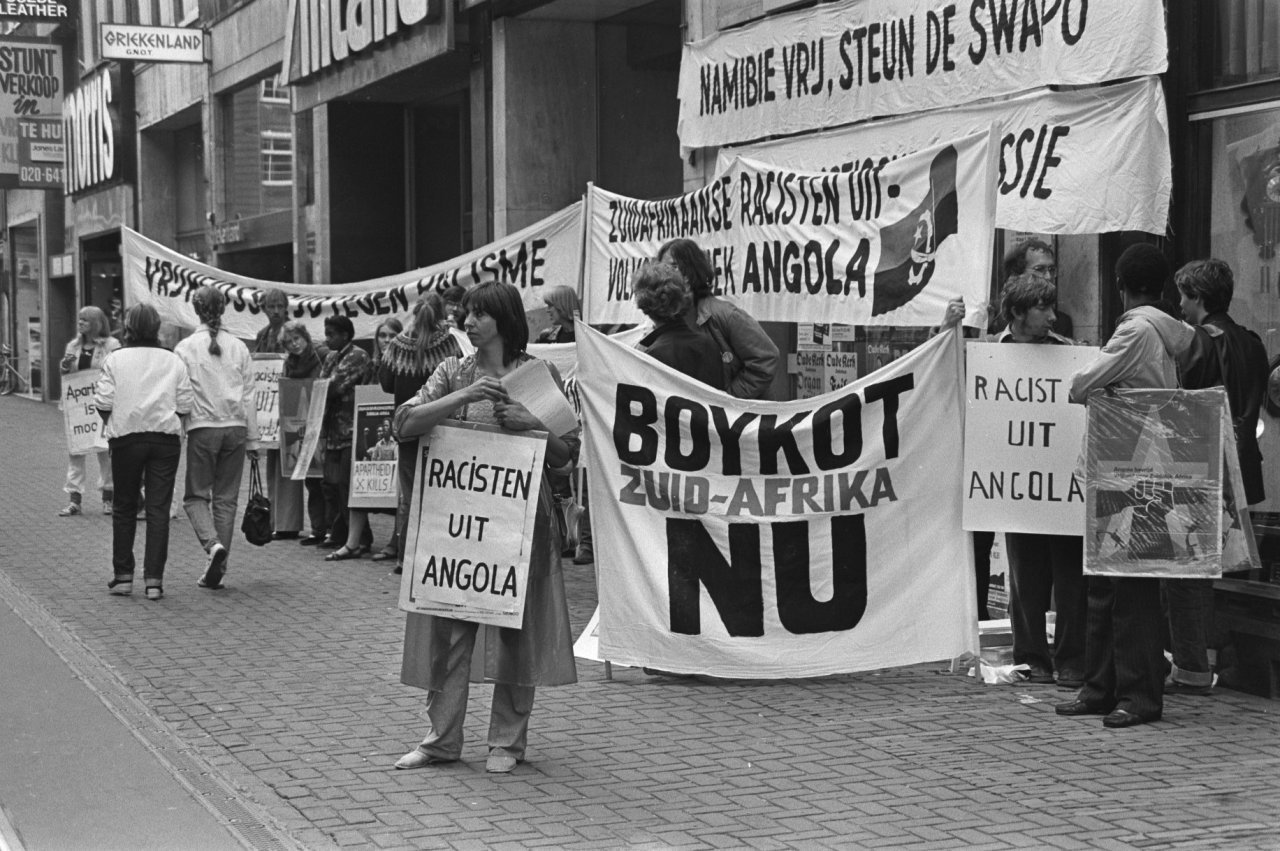
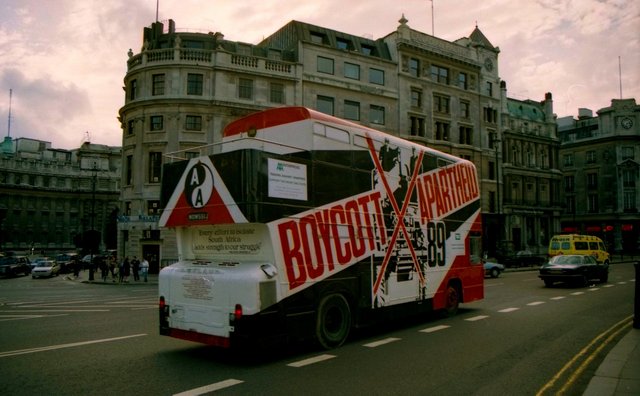
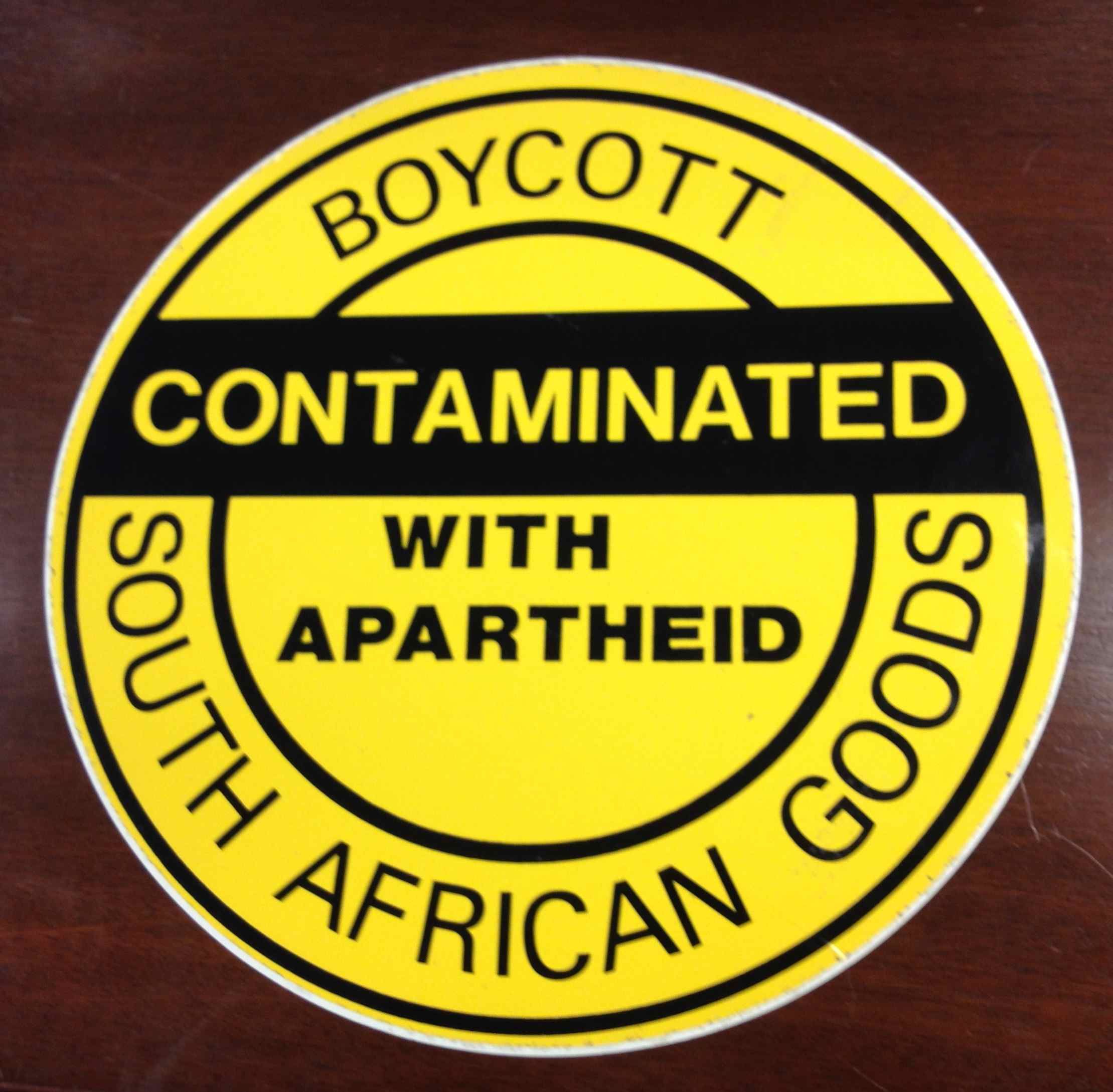
Other boycotts were used over the years, despite the suffering the Black communities had to endure. One of the boycotts was not to pay for rent in Soweto, which included electricity from 1986. (The major supplier of electricity is a semi state institution called Eskom. At that time about 35% of all South Africans had electricity. Today the ANC government has brought electricity to more than 85% of the inhabitants of the country.) The ANC encouraged this defiance in 1986 to bring about the release of Nelson Mandela from prison. Nelson Mandela has been freed and a democratic government installed. Yet the majority of Soweto residents still do not pay their electricity bills over 30 years later.

Of course the question is why?
Can a simplistic answer suffice? I don’t believe it can. There are many factors to consider, how one would weigh them could depend upon one’s political preferences. Can a person really be impartial? Do we have enough information, do I have enough information to make such a cavalier response?
Let’s try find some more things that could add to the above and help us in trying to establish whether a pattern can be found or not. You must also bear in mind my existing prejudices and mind set. I may like to think that I am impartial but am I really? Can I be? I can only present some observations and let you decide.
Firstly, in the White communities, I could be inclined to say that we are more subservient than our Black counterparts to aspects such as law and respecting industry. It is relatively easy to accept when one realises that industry and the government were aligned with the White. For Black people, decades of exploitation by industry and the prejudice of the legal system against them, mean that there is no confidence in expecting fair play from the system.
Secondly, it is extremely difficult to reverse a culture of non-payment. How much has the general plight of the poor changed in this country? Except for the elite few in the new power structures and cronyism (looking after own family members under favouritism) which includes massive corruption in their own benefit, very little has changed for the majority of the poor. Crass attempts at social engineering via Affirmative Action policies, Employment Equity and Quota systems are too slowly making a difference. The irony is that the second grade education provided by township schools in the old Apartheid days was better in general when compared to what is being currently offered. How can an entire nation be lifted up after decades of neglect?
Thirdly, the law enforcement agencies, such as the police and traffic departments, are poorly trained (in general) and observance of the law poorly enforced. If one wants to avoid accidents, never just go through a robot (traffic light?) when a green light is showing before looking either way, chances are, someone is racing through.
Fourthly, the culture as set by the existing political leadership, is one of corruption and theft on an unprecedented scale. The moral compromises made as an imperative for the success of the “Struggle” will only injure the offender the most. As so often quoted from a 19th century British Politician Lord Acton, “Power corrupts, absolute power corrupts absolutely”. He further went on to say the lesser known part of the phrase “Great men are almost always bad men”.
So people are free, liberty has been won at great cost: blood, lifetimes, money, integrity, sorrow, suffering and hatred. Make no mistake, general freedoms are so much more for the ordinary man today. However, the journey has only just begun, I believe the young must take over from the older generation. There is much forgiveness and tolerance, even a new spirit but the old generations must pass away. The young must never take for granted the sacrifices of those who have gone on before.
We must remember, but the past must not shackle our future.
This country is a miracle of making a good choice while under Mandela; other lands are dying in the poison of hatred, they could not make a good choice, their hatred was too strong.
Each day is new with promise, looking forward must be our focus.
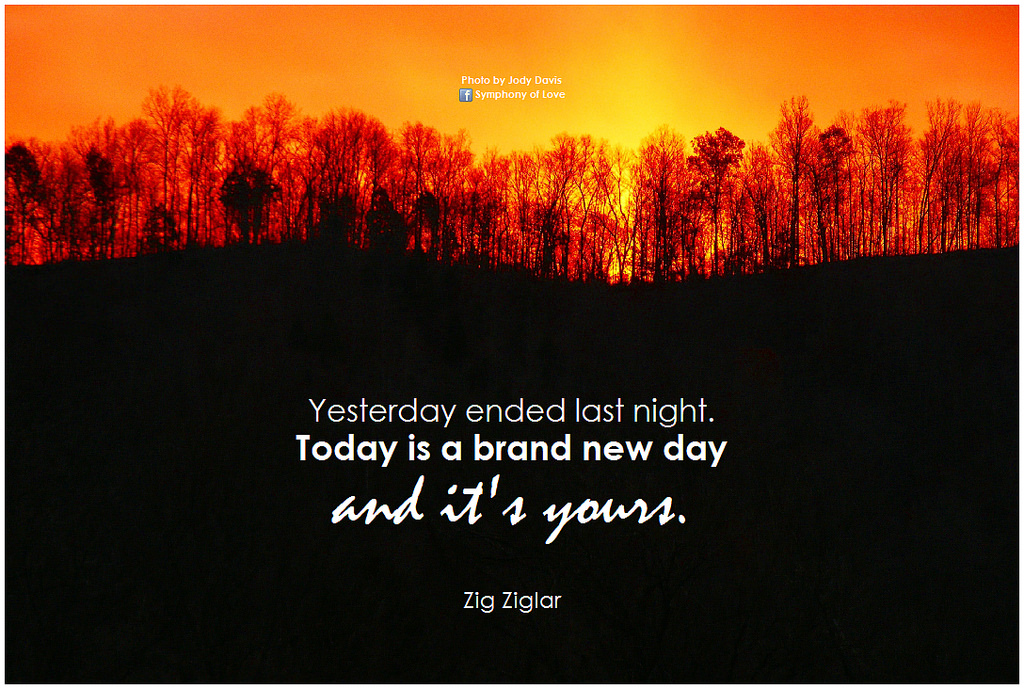

for my information sources, I looked at some of the writings of Ruth First, an activist and editor of the Guardian until it was banned. She was killed in 1982 when she opened a letter bomb sent by an Apartheid Government agent when she was in exile in Maputo. If you could look at her life story and her journalism, you would see a brave woman. Well worth the effort.
This is a nice piece, black people have less regard for law than white and am sure its because the law hasnt been fair to them so they dont trust it.
But all these points you gave about the laws being broken are okay but not compared to that of my country... recently we were told snake swallowed thirty something million... imagine that
South Africa is a victim of it’s own successes at the moment. During Apartheid there were a determined effort made not to educate black’s. As a result of this there were not and still is not enough educated black people to govern the country properly. This is leading to a weak bureaucracy and makes it easy for politicians to be corrupt and for good policies not to be implemented due to lack of knowledge. Due to political pressures the skilled whites were forced out of their positions and now there is a lack of skills in most departments. A good democracy work best when the three pillars of power are equal but this lack of skills is giving the politicians too much power, because two of the pillars aren’t functioning properly due to a lack of skills.
My thought exactly, you could think SA has taken a big leap backward. To add to all this the poison of hatred has eaten deep into its black citizens, recent happenings of xenophobia against fellow blacks and Africans. Of course they belief they have enough justifiable reasons for killing and maiming another human being. You have a law established why not let it take its due course except you also saying the laws are weak and shouldn't be respected. Hope sooner than later they return to being the darlings of the world and Africa.
I have seen some personal friends attacked in such a meaningless way. vigilantism is a curse but frustration in inevitable when corruption and laziness infect the police force.
good point, thanks
Dear, @ fred703. I can say that white people in Europe are facing such problems as in your country. I live in Bulgaria. The government is 100% corrupt, the prime minister of Bulgaria is a former criminal leader. The police do nothing. Drivers drive the car in a narcotic state. At traffic lights do not stop. Nobody wants to observe laws. A lot of accidents on the roads - people are dying. In power, people with kinship. A large number of gypsies who are not educated and do not want to study. The big unemployment. In the world of chaos. Different ethical races suffer. This is already a global problem :( (Sorry for my bad English.
that is very sad, thanks for sharing.
Law and Liberty have been known to be associated with each other. Whether it is law that provides liberty or it takes away the same is question that is often pondered upon. The discussion below is one such attempt to analyse and discuss the various aspects to the relationship between Law and Liberty and whether they are antithetical to each other or not. There is debate between ‘Liberty from the law’ that implies that a feature inherent to law is that it constrains liberty. ‘Liberty by the law’ implies instead that liberty is secured through law; a feature inherent to law is that it protects, or at least is capable of protecting liberty as long as it satisfies certain conditions.
democracy is a universal value based on the freely expressed will of people to determine their own political, economic, social and cultural systems and their full participation in all aspects of their lives. But what happened to South Africa is really unexpected 😞
nice post sir thanks. but it is not an element that restricts freedom of law. ?
I am interested in post title.
I think life is learning to balance conflicting ideas, not allowing one to unfairly dominate another idea
you have a point 👍
@fred703 the arise when the big people steal thing like money etc then people dont pay taxes we need to choose those people who at least sincere towards the people .
A difficult problem. One that I hope is resolved
that is why people should "experiment" with their votes, don't allow politicians to become too complacent. As I saw in the one picture "politicians are like baby's nappies, both should be changed regularly and for the same reason."|
well i think i will first read this and undestand this couse i am not an expert but i am a learner and i am learning from you some great thing nice post